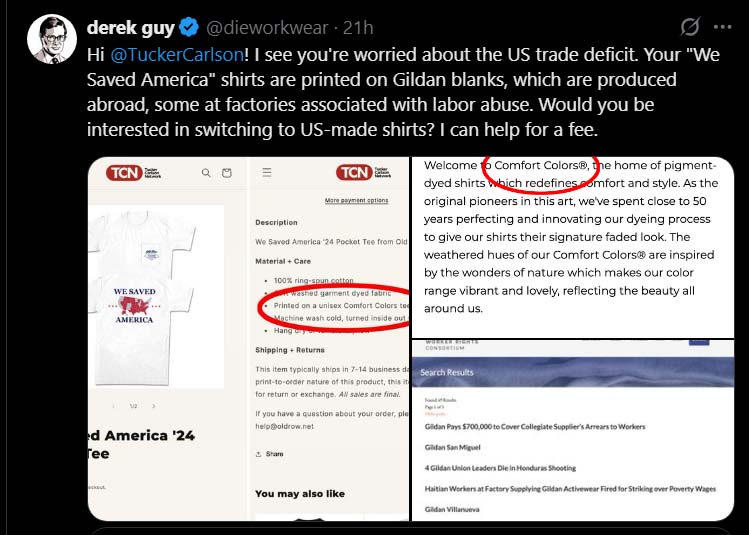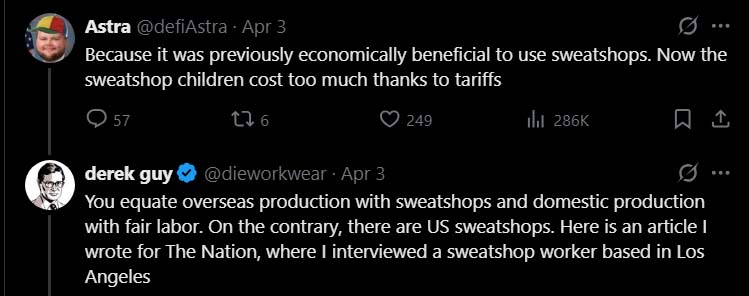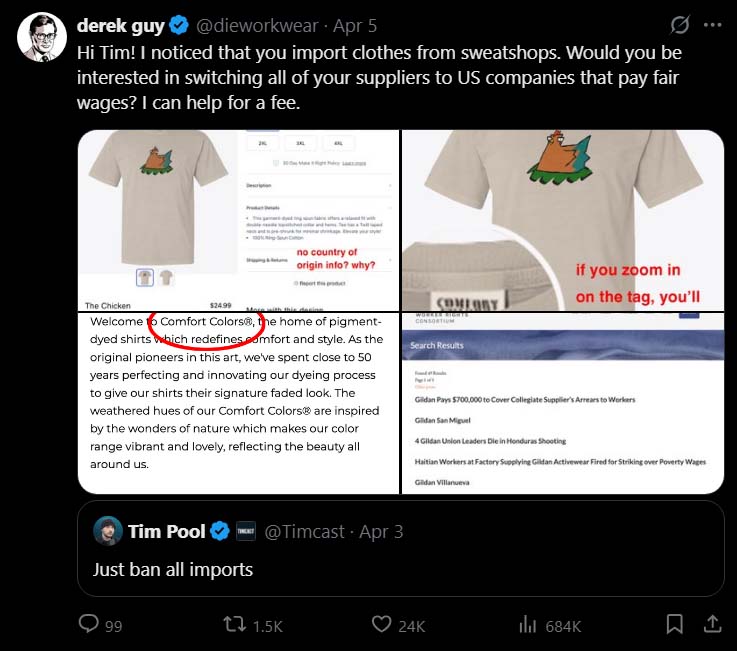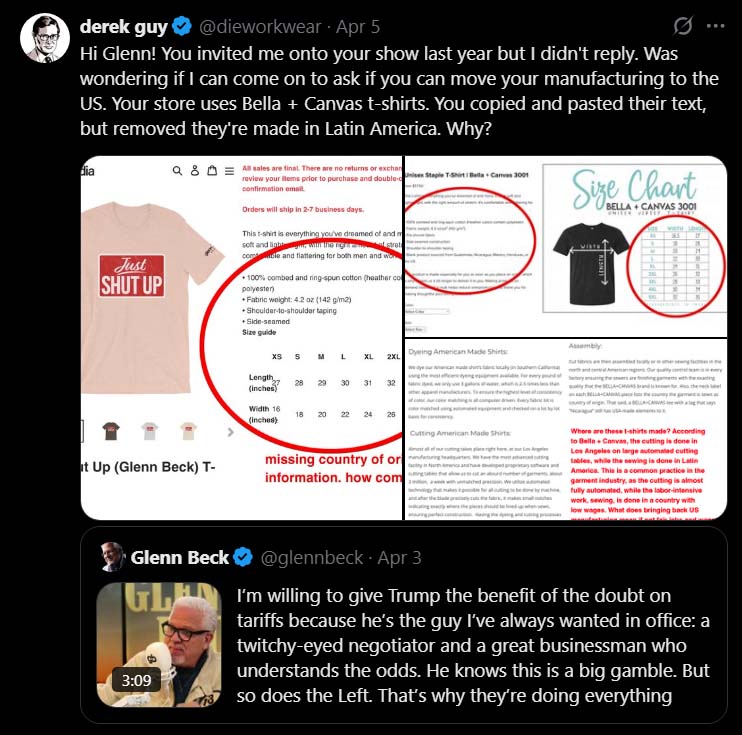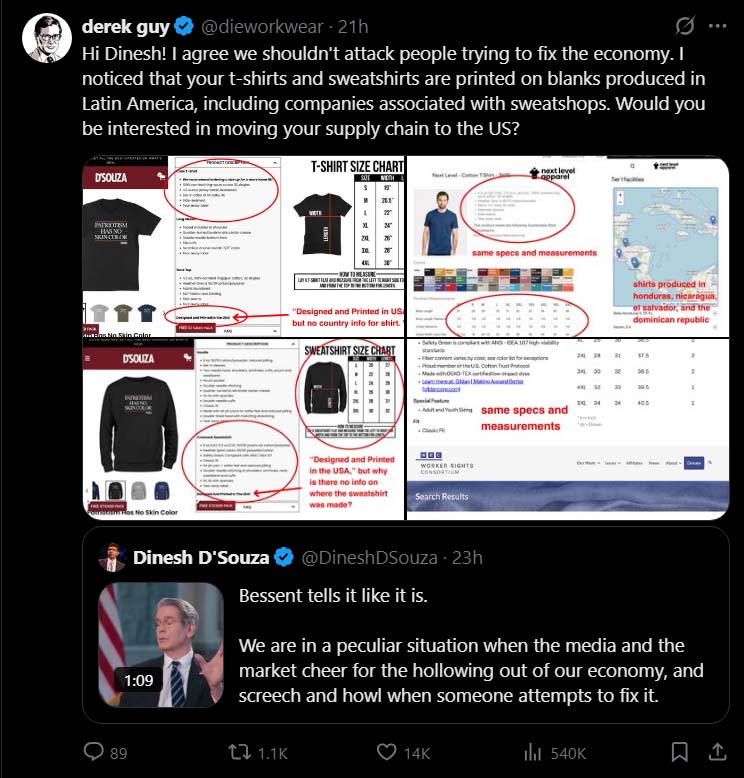*The quartering’s Jeremy pictured next to the Gildan shirts he was selling in his ‘apolitical’ coffee brand coffee shop
Menswear writer Derek Guy has offered his consulting services to help influencers who vocally support tariffs move their product manufacturing to the United States – and so far, has found no takers.
Guy, known for his expertise in men’s fashion and manufacturing processes, publicly announced his plan on social media: “If you support the tariffs, I will help you move your production to the US. I will charge you a consulting fee, which will help me own a home in a walkable neighborhood. You will have to walk the walk by sourcing from more expensive US suppliers, not foreign.”
The challenge comes amid heated national debates about trade policy, with some public figures advocating strongly for tariffs to protect American jobs. However, Guy’s initiative suggests there may be a disconnect between rhetoric and practice.
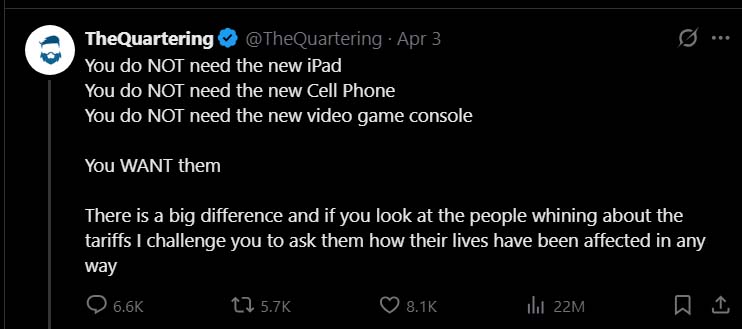
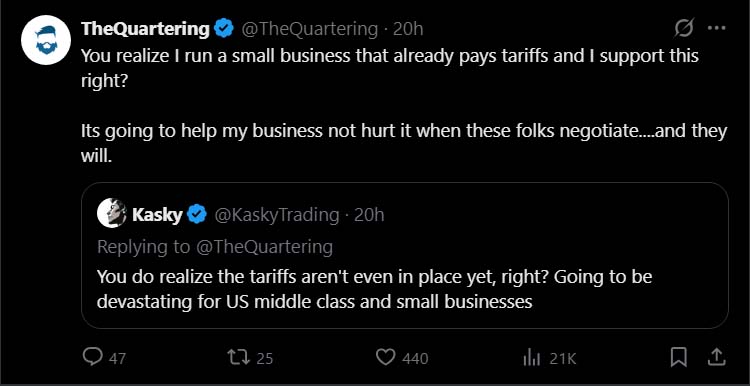
Among those approached was content creator Jeremy Hambly (known online as TheQuartering), who initially responded defensively to Guy’s proposition. When Guy followed up about helping him source his coffee and clothing products from the US, Hambly later explained he couldn’t use American coffee beans because “they’re expensive” and cited low customer demand for premium US options like Kona coffee.
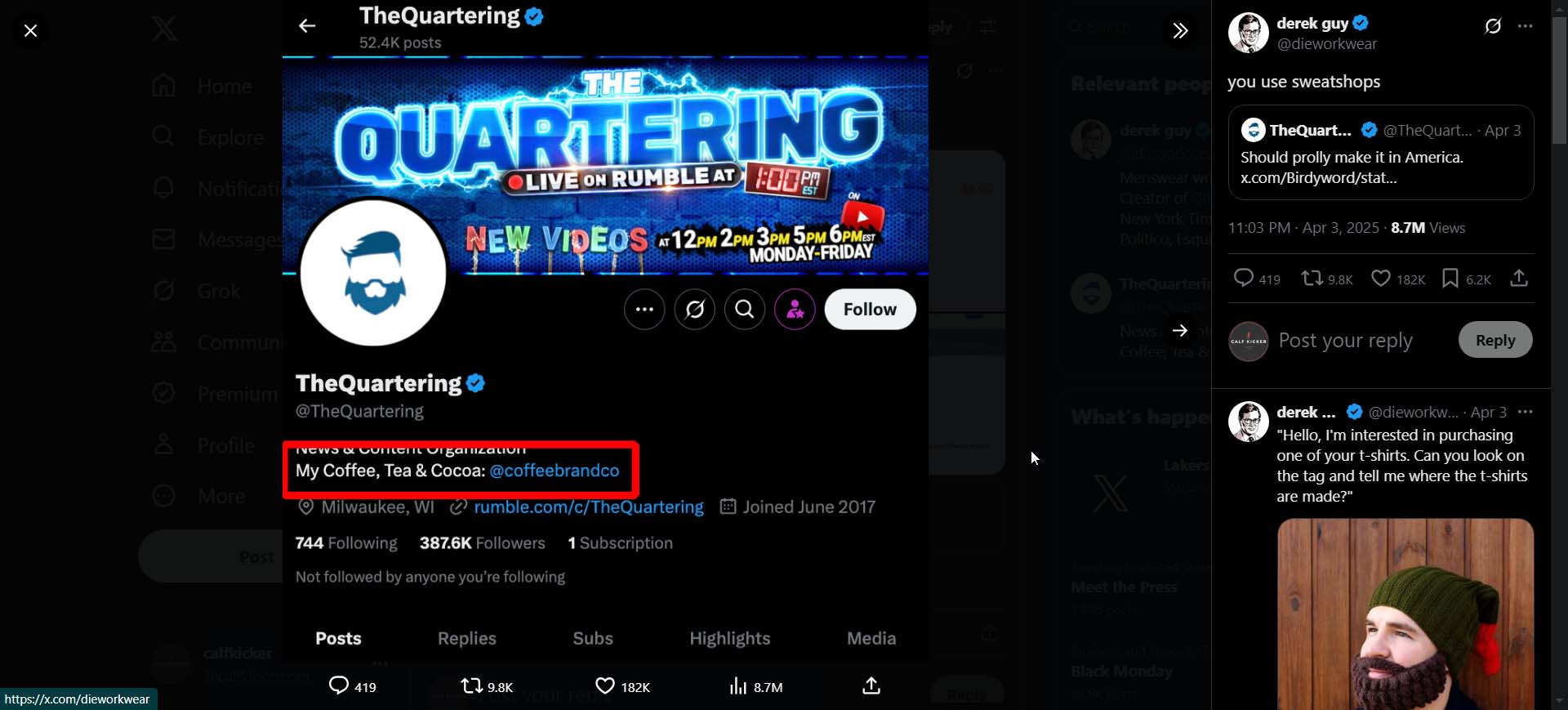
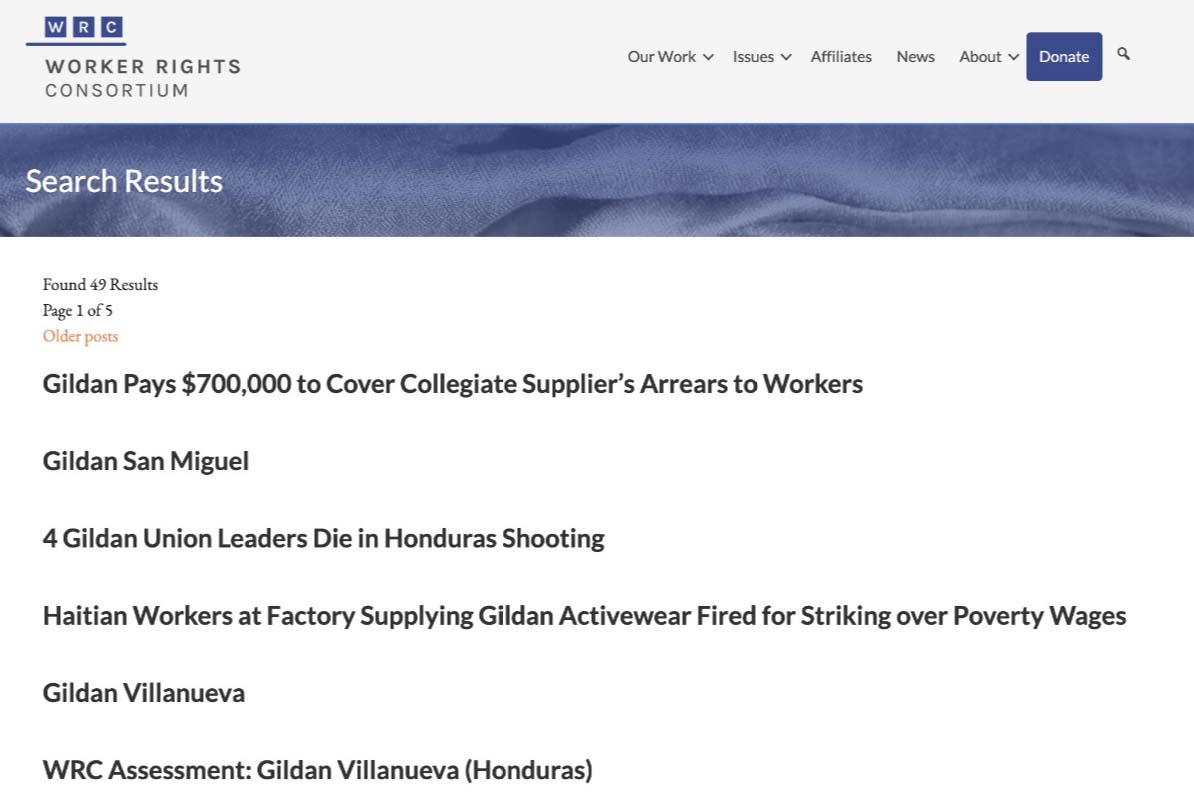
“Do you think that your customers would buy if they understood that buying from American farmers puts America first?” Guy pressed in response.
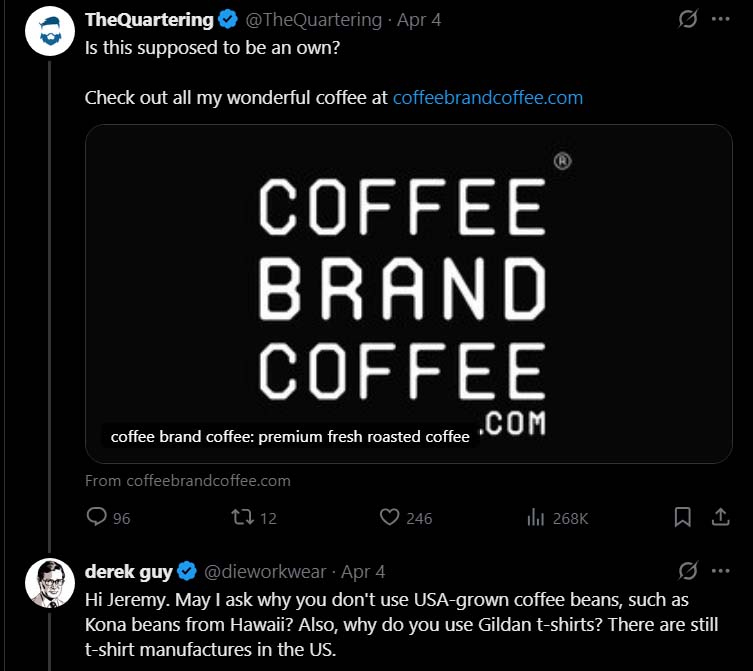
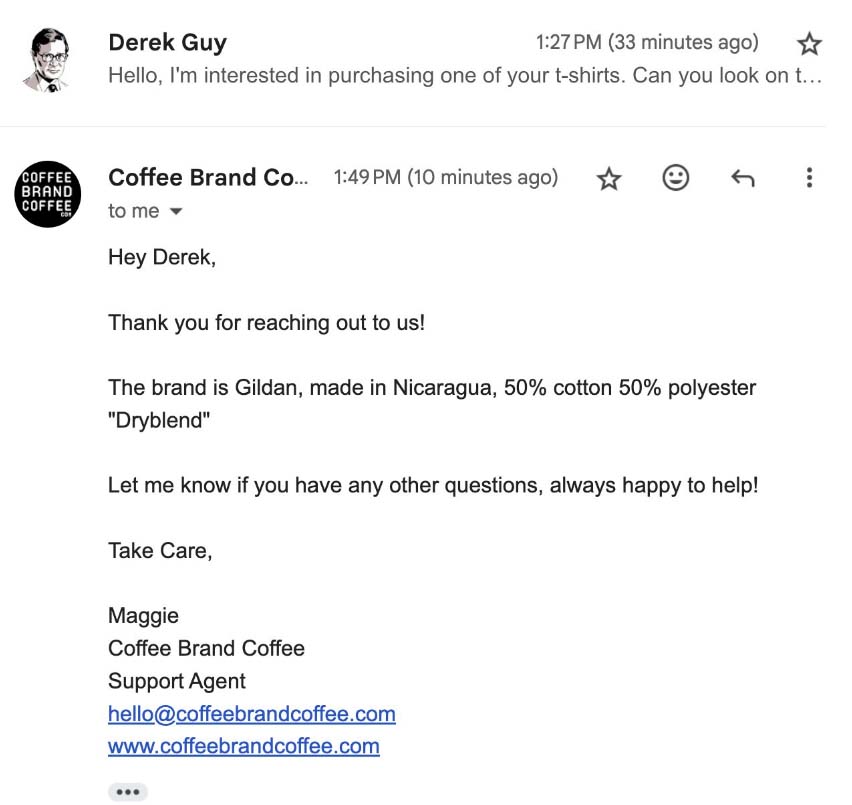

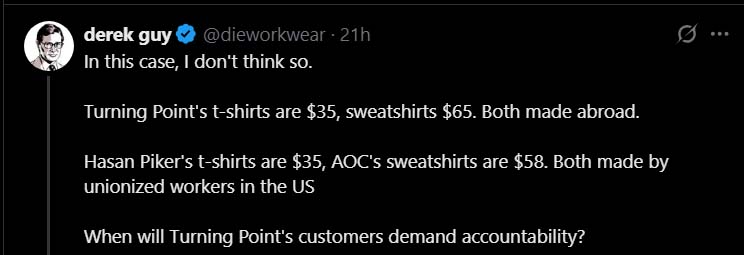
The style expert has extended similar offers to other high-profile figures including Tucker Carlson, Charlie Kirk, Glenn Beck, and Tim Pool – all of whom have merchandise lines that currently source materials or production from overseas.
Guy highlighted what he sees as inconsistencies in the market, noting: “How is it possible for AOC to sell a $58 US-made sweatshirt for $7 less than what Turning Point charges for a Chinese-made sweatshirt?” He pointed out that progressive figures like Hasan Piker and Alexandria Ocasio-Cortez sell merchandise made by unionized workers in the US at comparable prices to foreign-made alternatives.
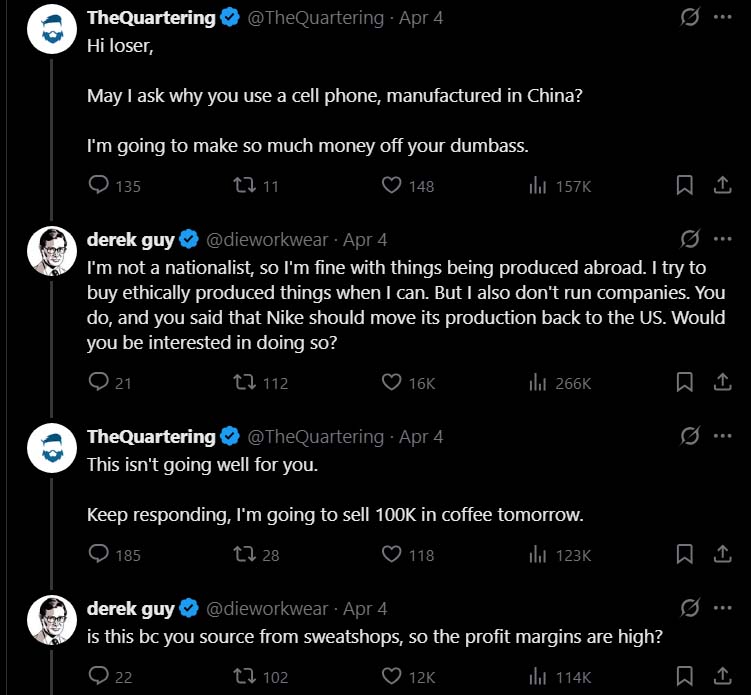
The consultant also challenged common assumptions about manufacturing quality, arguing that tariffs don’t automatically improve products: “Don’t know why people assume a return to US manufacturing means higher quality clothes. Very likely you get higher prices, fewer choices, and lower quality.”
He elaborated that quality garment production is complex and not simply determined by geography. “Not everything made abroad is a sweatshop and not everything made in the US is ethical. There’s ethical production abroad and sweatshops in the US! People ought to have a more complicated view of the world.”
As of publication, none of the influencers approached have publicly accepted Guy’s offer to help transition their supply chains to American factories, raising questions about the practical implications of the protectionist policies they advocate.
“My point has always been: if you advocate for US-made clothes and shoes, are you buying them?” Guy summarized. “Better still, if you run a company and sell merch, do you partner with US factories paying fair wages? Easy to virtue signal because talk is cheaper than US prices and tariffs.”
